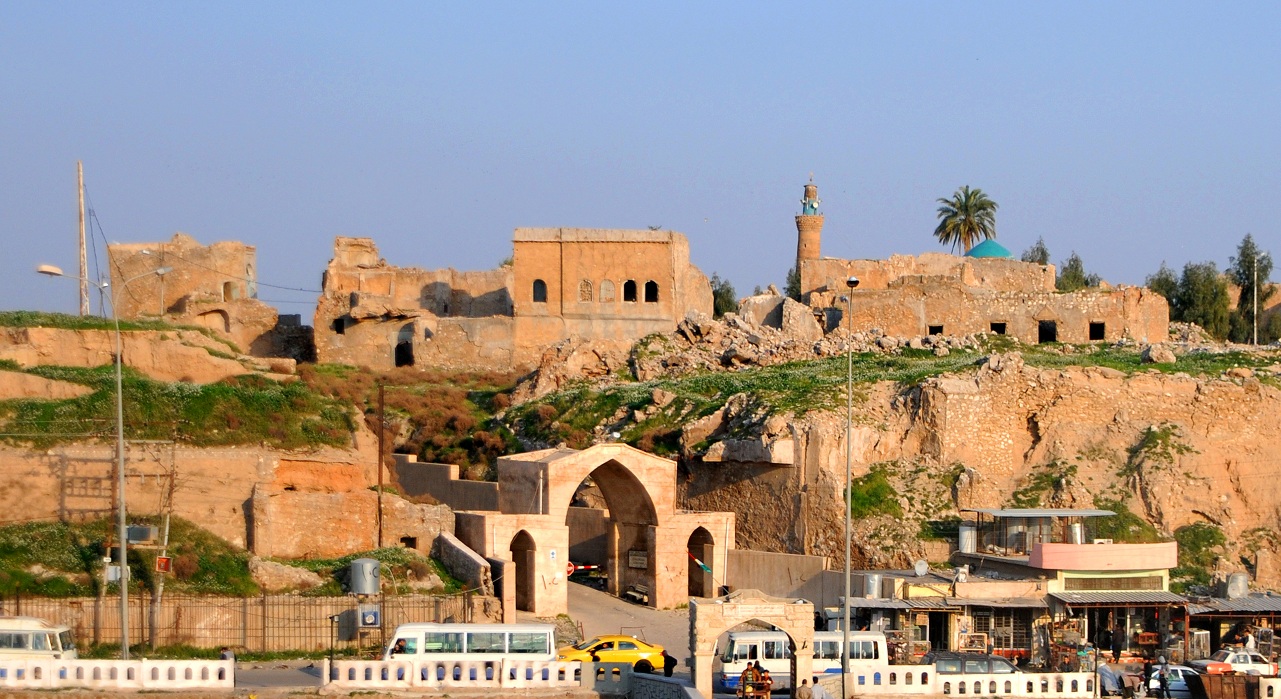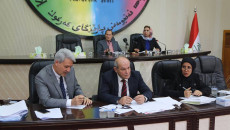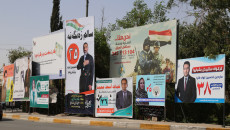The acting Governor of Kirkuk, has accused the Iraqi Justice Minister of overseeing the Peshmerga forces during the 2015 war against ISIS, which destroyed 138 villages and districts in Kirkuk, displacing Arab residents.
The governor's remarks came in response to an interview with Khalid Shwani, the Iraqi Justice Minister on behalf of the Patriotic Union of Kurdistan PUK, in which he accused Rakan Saeed Al-Jibouri of distributing Kurdish and Turkmen agricultural land to the Arab settlers.
The PUK, one of the key Kurdish factions led by Bafel Talabani, elder son of late Iraqi president Jalala Talabani, declared following a meeting of the Kurdish parties in Kirkuk end of 2021 that the post of Kirkuk governor is the party's entitlement according to the results of the October 10th, 2021 parliamentary elections in Iraq.
In the parliamentary elections that were held on October 10, the PUK won three seats out of a total of 12 seats allocated to the governorate based on which it considers itself the first winner of the elections in Kirkuk and based on that, it demands the position of Kirkuk governor, which is currently held by the Arab Front which has obtained only one seat in the province.
"Khalid Shwani led the Peshmerga forces in Kirkuk in 2014-2015. When the Peshmerga forces were fighting against Daesh (ISIS), they liberated a number of areas from the hands of Daesh fighters. The villages are Arab and well-known There is evidence that there were 138 Arab villages and districts, but 100 percent of the villages were destroyed by the Peshmerga and the people were displaced,” Jibouri told Dijlah TV on April 3rd.
"Not a single citizen has been arrested without a warrant since Law Enforcement Operation, but we have evidence that more than 3,000 Arab citizens are in prisons in the Kurdistan Region, who have been arrested since 2003," Saeed said.
The Kurdistan Regional Government (KRG) security forces had full authority in the province since mid-2014, but on October 16, 2017 after the return of the Iraqi army on the orders of former Iraqi Prime Minister Haider al-Abadi, the Kurdish Peshmerga and other security forces retreated. The operation was called "enforcement of the law.”
Rakan Saeed al-Jibouri had assumed the position of acting governor of Kirkuk in October 2017 by a decision of former Iraqi Prime Minister Haider al-Abadi, and currently one of the wining candidates of the Iraqi parliament, but it is not clear whether he will take his parliamentary seat this time or not.
Al-Jibouri secured in the previous session a seat in Parliament back in 2018 but he did not take the constitutional oath in order to remain in the position of governor instead of Najmaddin Karim, candidate of PUK, who was dismissed from his position in September of the same year by a decision of the Iraqi parliament.
Back in 2018, the Turkmens and Arabs each have got each three seats of the 12 parliamentary seats of Kirkuk and the rest six has gone to the PUK, one of the key Kurdish parties and stakeholder of the Iraqi Kurdistan Regional Government KRG.
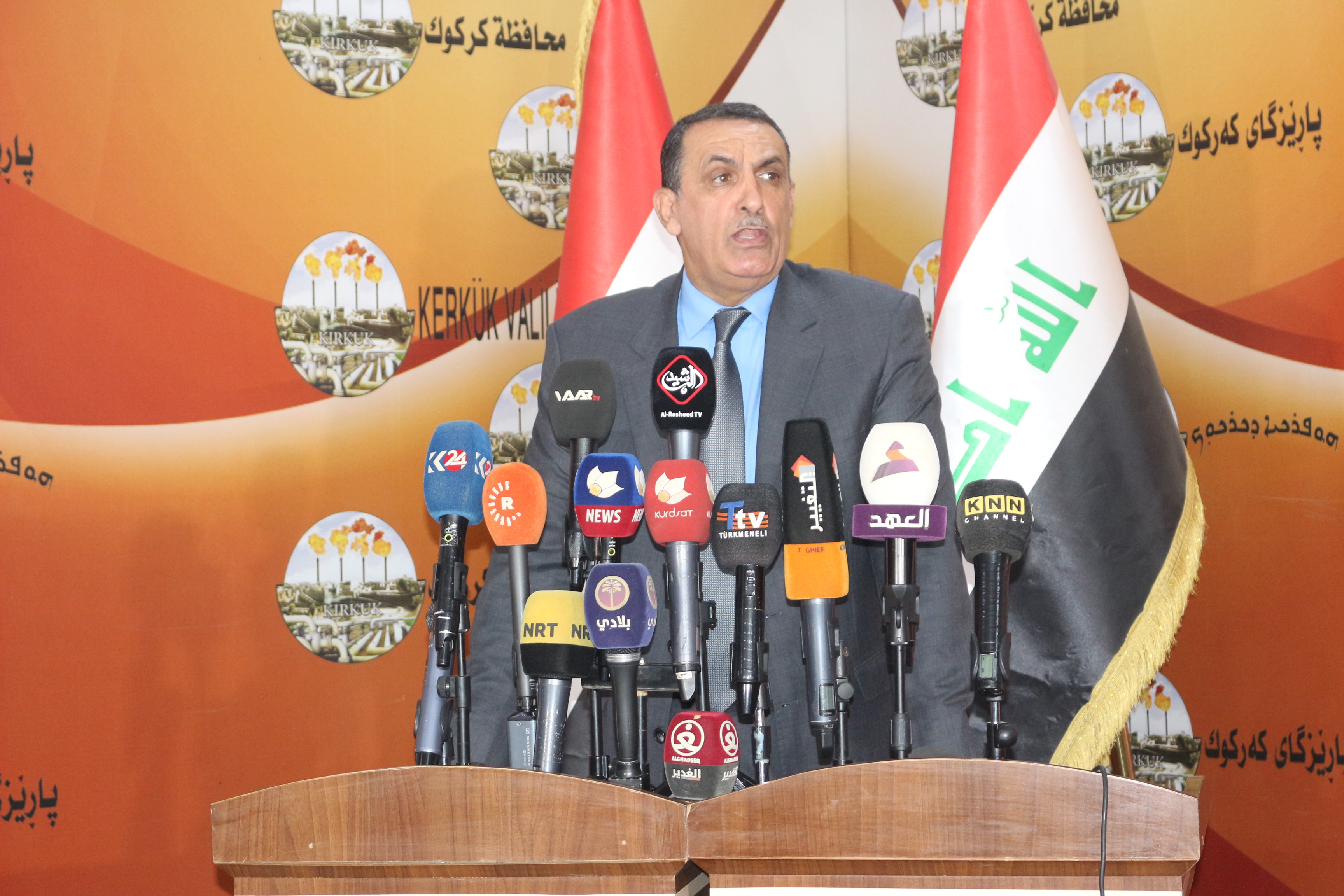
Kirkuk Governor Rakan Saeed Jabbari holds a press conference about the projects in the city, Kirkuk, August 2019. KirkukNow
In October 10th general elections, Turkmens have won two seats in the second constituency of Kirkuk and Arabs have won the three seats of the third district and a seat in the Kurd-predominant first constituency.
There is no evidence that Khalid Shwani was in charge of the Peshmerga forces and the Peshmerga Ministry at the time, but he was occasionally seen with other PUK officials armed on the battlefields against IS in Kirkuk.
Shwani accused acting governor of Kirkuk of "degradation" in an interview with the same channel last week, saying he was "taking back government positions from the Kurds.”
He pointed out that none of the four mayors of the four districts of Kirkuk are Kurds. Only two of the 10 sub-district directors are Kurds.
He also described Rakan Saeedi as "playing with fire" and said he was "taking agricultural land from Kurdish and Turkmen farmers and giving it to to the Arabs" and warned that if the situation is not controlled, “a blood will be shed that no one can control.”
"He has dozens of corruption cases and arrest warrants in the courts," he added.
The two sides are at odds over the provincial council elections law passed last week, which will hold provincial council elections in Kirkuk in November after 18 years.
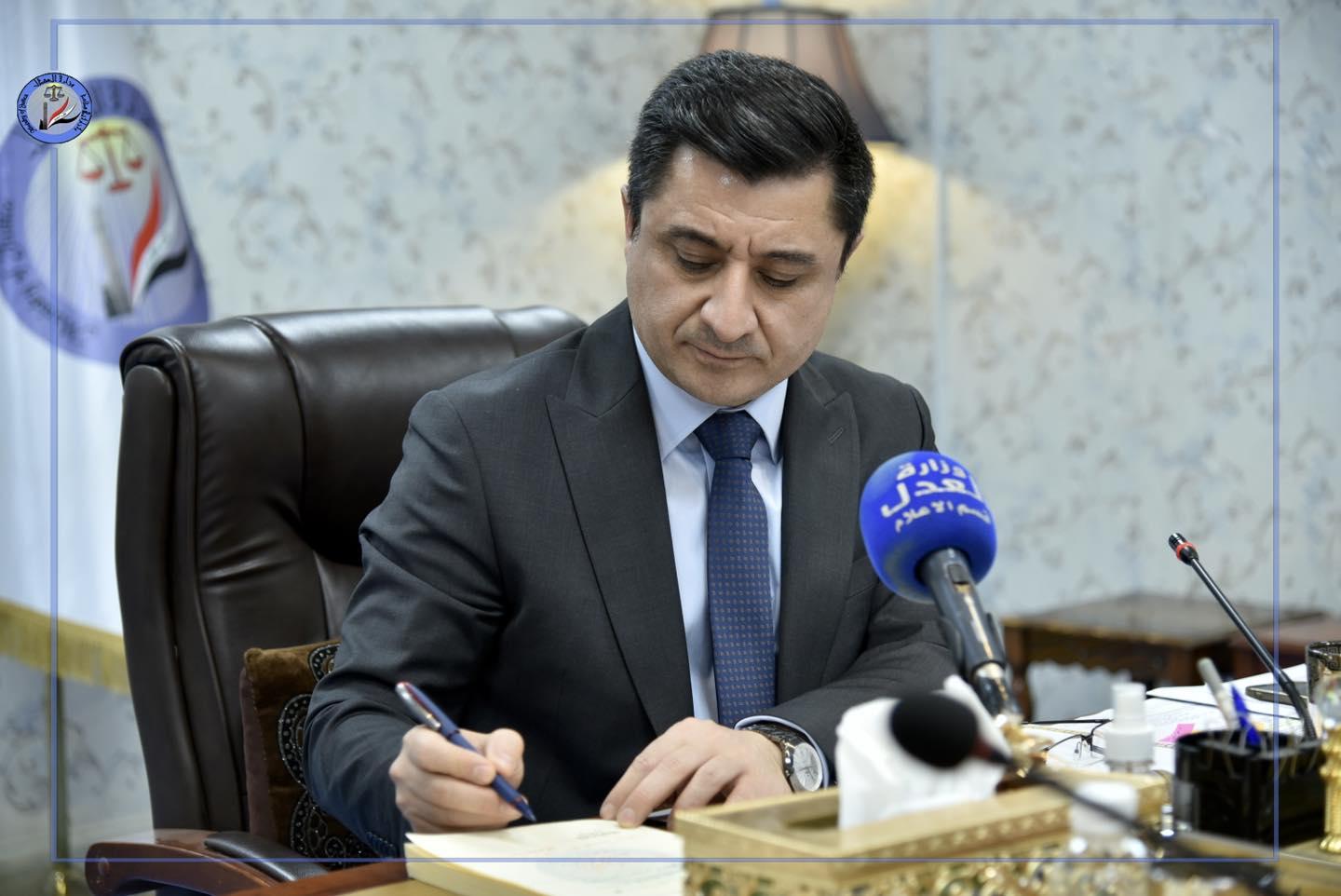
They also have a long-standing dispute over the post of governor of Kirkuk, which the PUK considers the right of the Kurds and their rights among the Kurds, after the post was taken back from the PUK on October 16, 2017.
The northern oil-rich city of Kirkuk, located 238 kilometers north of Baghdad, is an ethnically mixed province for 1.7 million Arabs, Kurds and Turkmens. It has long been at the center of disputed territories between Baghdad and Erbil.
Both key Kurdish parties, PUK and the Kurdistan Democratic Party KDP, along with the change of the governor, are working hard for the return of the Peshmerga forces to Kirkuk where they were forced to withdraw in October 2017 after the independence referendum in the Kurdistan Region, a matter strongly opposed by Arab and Turkmen communities and political parties.
Currently, the Iraqi army, local and federal police, Brigade 61 of Special Forces along with Shiite paramilitary of Popular Mobilization Forces PMF, are under Kirkuk joint operations’ command, an umbrella for the security forces running the security of Kirkuk province.

